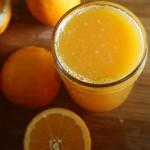Sugar Sweetened Beverages
Raise your hand if you’ve never had soda. Coffee drinks? Energy
drinks? Juice cocktail? They all attract the best of us. Maybe
you need a “pick me up” or you’re on the go and grab the kids
something that says “juice” on the label. But what are we really
consuming?
Sugar sweetened beverages are those that include sugar,
high-fructose corn syrup,
brown sugar, corn sweetener, corn syrup, dextrose, fruit juice
concentrates, glucose, honey, invert sugar, molasses, sucrose,
syrup or cane sugar. I know that was a mouthful so let’s get to
the bottom of it.
While not all artificial sugars, they are all sugars unnecessarily added to commonly consumed beverages. Maybe you’re wondering, “How much sugar is ok?” The truth is, our diet does not need any excess sugar. Everything we eat our body naturally extracts sugars from.
There is correlation between sugar intake and weight gain. Because the calories from sugar cause the weight gain, diet drinks have become an alternative because they don’t have the calories of a regular sugar sweetened beverage. However, diet drinks have no nutritional value. Often drinks advertised as having vitamins, are still packed with sugar. Be sure to read labels.
In regard to other health consequences, keep in mind that sugar has cumulative effects. Children in particular risk dental hygiene. Everyone increases their risk of diabetes and heart complications.
Healthier choices to consider include water and milk. Although it’s better to actually eat a fruit, 100% fruit juice beats having a soda or energy drink. A nice trick is to dilute juice with seltzer water to reduce intake of sugar and calories. It’s best to have sweetened drinks on occasion, rather than as a regular part of your diet.
Information courtesy of http://www.nyc.gov/html/doh/downloads/pdf/cdp/cdp-pop-the-fact.pdf


